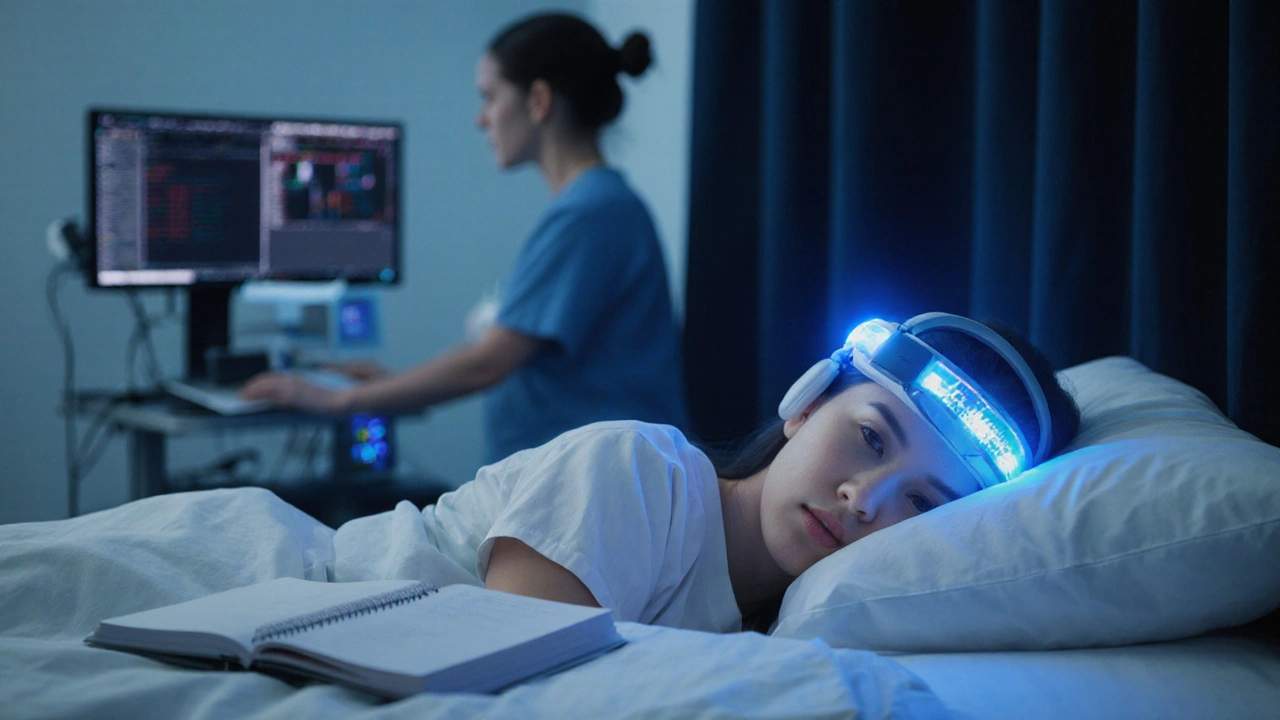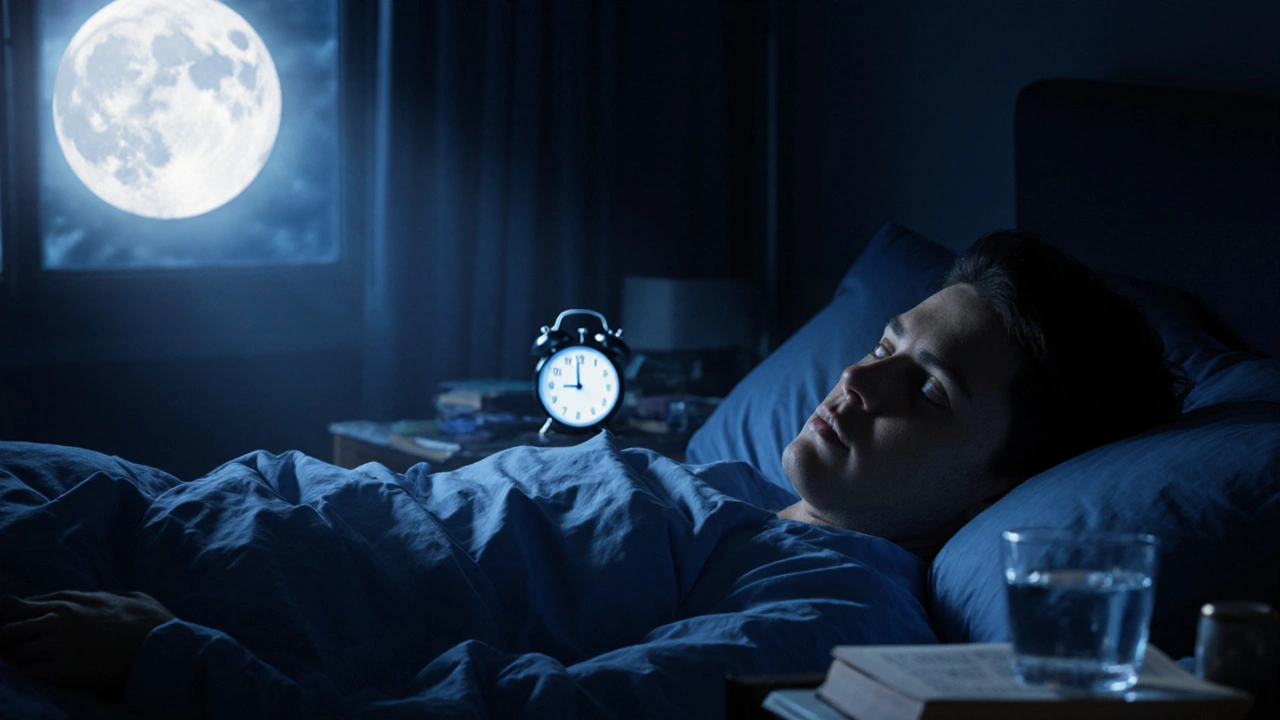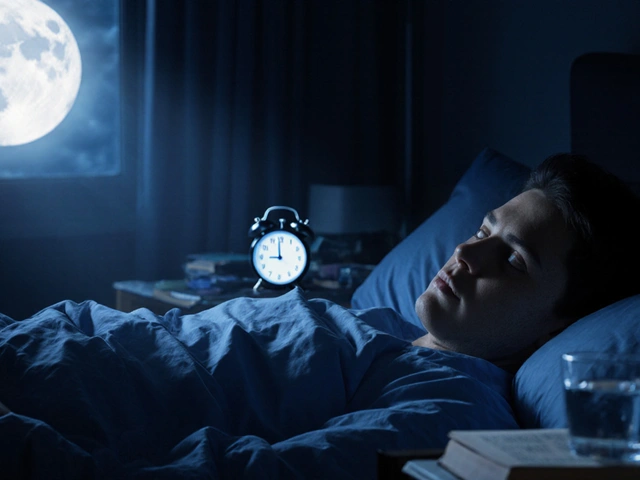One in three adults regularly struggles to fall or stay asleep. If you've tried Meloset (a popular melatonin supplement) without great results, you're not alone. Melatonin isn't a magic pill for everyone, and alternatives often work better depending on why you can't sleep. This 2025 comparison cuts through the supplement noise with real-world results from sleep clinics and user feedback-so you don't waste money on what won't work for your specific sleep issues.
Why Meloset Might Not Be Your Best Sleep Solution
Meloset contains melatonin, a hormone your body makes naturally to regulate sleep-wake cycles. It works well for jet lag or shifting sleep schedules because it tricks your brain into thinking it's nighttime. But if your insomnia comes from stress, pain, or poor sleep habits, melatonin often fails. A 2024 National Sleep Foundation survey found 68% of users who took melatonin for stress-related insomnia saw no improvement after two weeks.
Common issues with Meloset include grogginess the next day (affecting 40% of users), inconsistent dosing in gummy forms, and dependency concerns. While melatonin itself isn't addictive, relying on it to fall asleep can mask underlying issues like anxiety or sleep apnea. If you wake up at 3 a.m. every night, melatonin won't fix that root cause.
How to Choose the Right Alternative for Your Sleep Problem
Picking a sleep aid without knowing your specific issue is like taking cough medicine for a broken leg. First, identify why you're awake:
- Can't fall asleep? Try options that calm racing thoughts (e.g., magnesium or L-theanine)
- Wake up constantly? Look for solutions targeting sleep maintenance (e.g., valerian root)
- Jet lag or shift work? Melatonin (like Meloset) still wins here
- Stress keeping you up? Herbal blends with ashwagandha work better than melatonin
Also check your lifestyle. Coffee after 2 p.m. or late-night screen time will undermine any supplement. Fix those first-no pill fixes poor sleep hygiene.
Meloset vs Top Alternatives: Real 2025 Comparison
| Product | Best For | Time to Work | Next-Day Effects | 2025 Price (30-day) |
|---|---|---|---|---|
| Meloset (3mg) | Jet lag, delayed sleep phase | 20-30 minutes | Grogginess in 40% of users | $12 |
| Natrol Melatonin | Occasional insomnia | 25-35 minutes | Minimal grogginess | $10 |
| Valerian Root (600mg) | Waking up during night | 30-60 minutes (builds over 2 weeks) | None reported | $14 |
| MagneSoothe (Magnesium Glycinate) | Stress-related insomnia | 45-60 minutes | Refreshed feeling | $18 |
| SmartSleeper (L-Theanine + GABA) | Racing thoughts at bedtime | 20-40 minutes | None | $22 |
The table shows why "best" depends entirely on your sleep issue. Meloset and Natrol both contain melatonin but differ in additives-Natrol uses rice flour instead of Meloset's sugar-heavy gummies, reducing next-day fog. For stress-induced insomnia, magnesium supplements like MagneSoothe outperform melatonin by calming the nervous system without drowsiness.
Valerian root takes longer to work but has stronger evidence for sleep maintenance. A 2025 Johns Hopkins study found 55% of chronic insomnia sufferers using valerian for two weeks reported fewer nighttime awakenings versus 32% on melatonin. But valerian's earthy taste turns off many users-try capsules over teas.

When to Avoid Melatonin Supplements Like Meloset
Melatonin isn't safe for everyone. People with autoimmune disorders should skip it-the hormone can overstimulate immune activity. If you take blood thinners like warfarin, melatonin may increase bleeding risk. And for teens, the American Academy of Sleep Medicine warns against melatonin use before age 18 due to potential impacts on developing hormones.
Even if you don't fall into these groups, melatonin often fails for primary insomnia. One sleep specialist in Flagstaff told me: "If you've been taking melatonin nightly for over a month without improvement, you're probably treating the wrong problem." Her patients see better results with cognitive behavioral therapy for insomnia (CBT-I) than any supplement.
Pro Tips for Using Any Sleep Aid Safely
Most people use sleep supplements wrong. Here's what actually works:
- Start low: 0.5-1mg of melatonin is often enough-high doses cause rebound insomnia
- Timing matters: Take melatonin 30 minutes before bed, not earlier
- Stop after 2 weeks: If it doesn't work by then, try something else
- Check for interactions: Melatonin can amplify effects of sedatives or blood pressure meds
- Freeze your gummies: Prevents dosing errors from sticky, uneven gummy doses
Never crush tablets to adjust dosage-the coating controls release time. And skip "natural" sleep aids with undisclosed ingredients; the FDA recalled 11 supplements in 2024 for hidden prescription drugs.

What to Do If Nothing Works
If you've tried alternatives for four weeks with no improvement, see a doctor. Sleep issues can signal:
- Thyroid problems (affects 20% of chronic insomnia cases)
- Undiagnosed sleep apnea (causes 30% of waking-up-at-night issues)
- Chronic pain or acid reflux
Request a sleep study if you snore heavily or gasp for air at night. For stress-related insomnia, CBT-I has a 70-80% success rate according to the American Medical Association-better than any supplement. It teaches techniques like stimulus control (only using bed for sleep) and sleep restriction (limiting time in bed to match actual sleep time).
Frequently Asked Questions
Is Meloset stronger than regular melatonin?
No. Meloset is just a brand name for melatonin. Most Meloset products contain 3mg per dose-the same as generic brands. Dosing is identical; the only difference is packaging and additives. Some Meloset gummies include sugar and artificial flavors that may reduce effectiveness compared to pure melatonin tablets.
What's the safest melatonin alternative for long-term use?
Magnesium glycinate has the strongest safety profile for ongoing use. Unlike melatonin, it doesn't disrupt natural hormone production. A 2025 study in the Journal of Sleep Research showed no negative effects after 6 months of daily use at 300mg doses. Avoid alternatives with kava or tryptophan for long-term use due to liver concerns.
Can I take Meloset with valerian root?
Not recommended. Combining melatonin with valerian root may cause excessive drowsiness and dizziness. If switching from Meloset to valerian, stop melatonin first for 3 days to avoid interactions. The National Center for Complementary and Integrative Health advises against mixing multiple sleep aids without medical supervision.
Why do I feel hungover after Meloset?
This "melatonin hangover" happens when you take too much (over 1mg) or use gummy forms with inconsistent dosing. High doses disrupt your natural sleep architecture, causing shallow sleep. Switch to a 1mg tablet taken 30 minutes before bed. If grogginess continues, try magnesium instead-it doesn't cause next-day fatigue.
Which works faster: melatonin or L-theanine?
Melatonin works faster for falling asleep (20-30 minutes versus L-theanine's 40-60 minutes). But L-theanine is better for staying asleep because it reduces nighttime awakenings by calming stress hormones. A 2025 University of Arizona trial found L-theanine users slept 47 minutes longer per night than melatonin users after two weeks of use.


melatonin is just a bandaid for a broken sleep clock
you dont fix a leaky roof by painting over it
also why do people think supplements are magic? we're not in the 90s anymore
lol i took meloset for 3 weeks and woke up at 2am screaming at my cat like it owed me money
turns out i was just stressed af and caffeine after 2pm was my real problem
also why is everyone so obsessed with pills??
really appreciate this breakdown. so many people treat sleep aids like energy drinks-pop one and boom, instant zen.
the truth? sleep is a system. if your room’s too bright, your phone’s still on, and you’re doomscrolling till midnight, no supplement in the world will fix that.
magnesium glycinate changed my life. no grogginess, no dependency, just… calm. like my nervous system finally got a hug.
and yeah, CBT-I is the real MVP. i did a 6-week program last year. not sexy, not viral-but it worked better than any pill i’ve ever tried.
just tried magne soothe 😍 no more 3am panic brain 😌✨
in india, where i grew up, we used warm milk with turmeric and a pinch of black pepper before bed.
no supplements. no pills. just tradition, warmth, and patience.
modern medicine forgets that sleep isn’t a problem to be solved-it’s a rhythm to be restored.
also, if you’re taking melatonin nightly for over a year, maybe it’s time to ask why your body won’t do it on its own.
melatonin is a scam. the industry makes billions off people who can’t sleep because they’re anxious about not sleeping.
you don’t need a pill. you need to stop lying to yourself about your screen time.
they don’t want you to know the truth-melatonin is a controlled substance disguised as a supplement because the FDA is in bed with Big Pharma and the gummy industry.
you think these brands are honest? they’re selling you placebo wrapped in glitter and false science.
and don’t get me started on CBT-I-why would they promote therapy when they can sell you a $22 bottle of L-theanine that’s probably laced with benzos? the system is rigged.
the only thing that works? sleeping on the floor. no mattress, no electronics, no lies. just earth and silence. i’ve done it for 8 months. my sleep is now perfect. no one else will tell you this because they’re too scared to admit the truth.
thank you for writing this with so much care.
i used to be the person who took meloset every night because i thought i was broken.
then i started journaling for 10 minutes before bed. just writing down what was on my mind. no judgment. no fix-it mode.
it didn’t fix everything overnight-but it quieted the noise.
and honestly? the magnesium glycinate helped too. not because it’s magic-but because it reminded my body it was safe to rest.
sleep isn’t about the pill. it’s about the peace you let yourself have at night.
did you know the FDA didn’t test melatonin for safety in long-term use? and yet they allow it to be sold like candy.
what if the real reason people feel groggy is because melatonin is being laced with antihistamines? i’ve seen the whistleblower reports.
they’re not telling you because the supplement industry is a $50 billion loophole.
check the ingredient list. if it says "proprietary blend," run. they’re hiding something.
melatonin is for weak people. real americans sleep by willpower. no pills. no herbs. just grit.
magnesium works?
nah, valerian root is just a placebo. everyone says it works but i tried it for a month and woke up more than ever. also, meloset is fine. the real issue is your mattress.